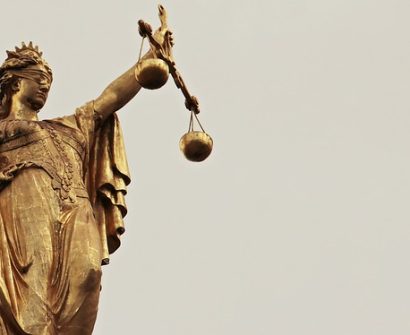PMLA ACCURACY: SC HOLDS CHARGES OF MONEY LAUNDERING NOT TO BE ASSOCIATED WITH SCHEDULED OFFENSES

A significant provision of the Prevention of Money Laundering Act 2002 (PMLA) has been addressed by the Indian Supreme Court, which affirms that a person accused is not always required to be a co-defendant in the scheduled offense. The legal framework around cases involving money laundering and the connection between the PMLA as well as additional criminal statutes will undergo shifts as a result of this decision, which has significant implications.
Prevention of Money Laundering Meaning
- According to the prevention of money laundering meaning, this act was passed in order to combat the crime of legalizing earnings or profits obtained through illicit means. The Government or public authority may seize property obtained from the profits of illicit activity under the Prevention of Money Laundering Act 2002. Money laundering, to put it in simple terms, is the process of turning money obtained unlawfully into legal money.
- The PMLA’s close relationship with scheduled offenses is one of its most distinctive features. The word “scheduled offense” covers a number of underlying offenses stipulated by the Act, notably corruption, terrorism, and drug trafficking. It was conventional to presume that a person charged with money laundering in violation of the PMLA would additionally have to be convicted for the scheduled offense that yielded the illegal money.
Prevention of Money Laundering Act 2002 Purpose
The Prevention of Money Laundering Act 2002 purpose is as follows:
- Stop the laundering of money.
- Stop/avoid the flow of funds into illicit ventures and financial crimes.
- Make provisions for the confiscation of goods obtained through money laundering or utilized in it.
- Punish those who commit offenses involving money laundering.
- Appointing a tribunal of appeals and an adjudicating body to handle money laundering cases.
- Make provisions for things related to and resulting from money laundering activities.
Pavana Dibbur v Directorate of Enforcement (ED): Case Facts
- The case before the highest court stemmed from an appeal filed by Pavana Dibbur, who sought to be charged with money laundering based on a criminal conspiracy to buy two properties in Bengaluru, one from Madhukar Angur for 2.47 Cr and another from Alliance Business School for13.05 Cr.
- According to the charges, the petitioner, who knew Madhukar Angur (Accused no. 1), conspired to carry out a fraudulent and nominal sale deed involving Alliance University properties without any consideration while serving as VC of the educational institution from 2014 to 2016. She was also accused of helping Accused No. 1 conceal money taken from the university by using her bank accounts.
- The petitioner has been charged by the ED under sections 44 and 45 of the PMLA with offenses described by Section 3 combined with Section 8(5) and Section 70, all of which are punishable under Section 4 of the Prevention of Money Laundering Act (PMLA).
Pavana Dibbur v Directorate of Enforcement: Case Verdict
- The requirements necessary for attracting crime according to Section 3 of the PMLA have been highlighted by the Court. It does not necessitate the existence of both the scheduled offense and the proceeds of the crime associated with it.
- The Criminal conspiracy offense, which is punishable under the virtue of Section 120B of the Indian Penal Code, shall only be included in the Prevention of Money Laundering Act’s Schedule if it is directly related to another offense that is listed there. This ruling was made by the Supreme Court on Wednesday.
Pavana Dibbur v Directorate of Enforcement: Legal Basis
- The decision rendered by the Supreme Court has been backed by an in-depth examination of the PMLA’s wording and purpose. The court emphasized that it is not explicitly required by the language of Section 45 of the PMLA for a person who is charged with money laundering to additionally be charged with the scheduled offense. The court attempted to balance the regulations of the PMLA with its core principles of fairness and equity by evaluating the legislative intent.
Money Laundering: It Impact in the Society
- The necessity to prove an immediate link connecting the accused’s role in the initial offense and subsequent money laundering operations traditionally placed limitations on law enforcement agencies.
- This constraint often caused the legal procedure to drag out and grow more difficult.
- Prosecutors now have greater flexibility when developing cases against individuals depending just on allegations of money laundering, because of the Supreme Court’s clarification.
- Authorities will be allowed to concentrate on the monetary aspects of criminal activity without being limited by the fundamentally scheduled offenses, as this is expected to simplify investigations and prosecutions.
A major turning point in the development of the nation’s anti-money laundering laws has been accomplished by the decision of the Supreme Court, which changes the link between PMLA offenses and scheduled crimes. It is crucial that we find a balance between the necessity of safeguarding individual liberties and due process and the urgent need for effective prosecution of financial crimes, as the legal profession examines the consequences of this decision.
The Supreme Court’s decision underscores the necessity it is to strike an appropriate equilibrium between justice and fairness while trying to put an end to money laundering.










